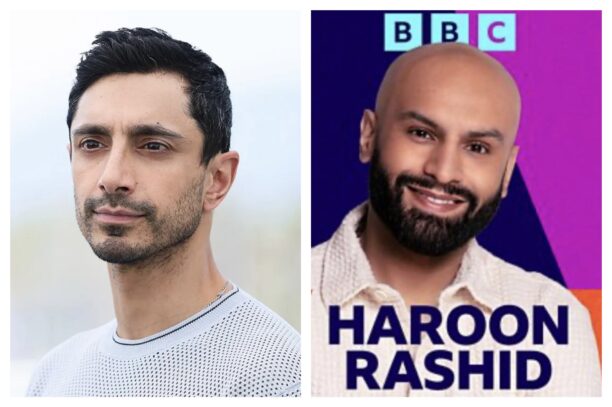 Riz Ahmed, who is known for many brilliant performanes including in films like, Venom, Four Lions, and Night Crawleramong many others, joined Haroon Rashid on BBC Asian Network on November 6th for a fascinating interview. The actor not only discussed his new film, the brilliant thriller Relay, Ahmed also touched on many relevant topics including the importance of the story of a film, his views on South Asian representation in entertainment and delves into his feelings about how he has had to work harder than some of his acting peers to get to where he is today and why that is a gift.
Riz Ahmed, who is known for many brilliant performanes including in films like, Venom, Four Lions, and Night Crawleramong many others, joined Haroon Rashid on BBC Asian Network on November 6th for a fascinating interview. The actor not only discussed his new film, the brilliant thriller Relay, Ahmed also touched on many relevant topics including the importance of the story of a film, his views on South Asian representation in entertainment and delves into his feelings about how he has had to work harder than some of his acting peers to get to where he is today and why that is a gift.
Here are some highlights!
Speaking about how he worked to further representation in the industry and how that has changed over his career, Ahmed said, “I felt I wanted to represent people that didn’t feel represented, not least myself and the younger version of myself, you know. I remembered when we’d see a brown person on TV and everyone in the household would be like ‘oh Asian, Asian’ and you’d stop what you were doing, run downstairs, see who’s on TV, right, you remember those days? So of course, I’m aware it’s meaningful because I’ve grown up in a culture where I felt unseen, so I want people to feel seen.
“However, I’ve kinda changed my thinking on it a lot right now at this point because I’ve realised that the whole idea that one person can represent a community is kinda nonsensical. We’re so complex, we’re so infinitely varied, we’re so diverse, and that’s true of all comminates. I think the thing that I’m trying to focus on now rather than representing for other people, is to really present myself honestly.”
Adding, “You know the American Nigerian writer Teju Cole says that what people want from a piece of art or an artist is to feel a sense of freedom. I think representation and so much of the conversation around that can be like I’m representing other people because we demand liberation. ow, I just want to be liberated and I just want to embody that. I want to be the change that I want to see and not talk about the change someone else can give me. So, really what I’m thinking is like if I can do me without feeling a sense of responsibility to anyone, then actually that’s the most transformative thing, that’s the most transformative energy to put out there.”
In a deeply profound moment, the actor talked about how the struggle can be a gift. “It’s interesting, I think that everyone’s gift is their curse, I believe that deeply. I believe that everyone’s curse is their gift and I think that sometimes if the obstacles in front of you are something that you take as not just a curse but as a gift, if you think of them as opportunities for you to grow and for you to also challenge the culture to grow, that’s a beautiful thing.”
Continuing on that thought he said, “It’s interesting, the same thing that makes my journey harder is also the same thing that I believe makes it more meaningful for myself and others. And I probably wouldn’t swap that out you know? I’d probably want to have a slightly harder journey that people connect to more deeply and carries a bit more meaning.”
“I think when you’re trying to change culture that’s not going to come easy, that’s kinda what I feel I’m here to do”, Ahmed added, “I feel that Storytelling, at its best, can do that, you know. To take people out of their comfort zone, to overturn people’s assumptions, and to shake things up a little bit. And it’s always going to be met with some resistance, some of that’s overt resistance, some of that is just laziness, some of that is just unfamiliarity. Like I said, like you could say, things should be different, things could be different. I’m really interested in trying to embrace the beauty of the struggles that we do face. To me it is a beautiful struggle. To me it is imbued with deep meaning and resonance.”
Check out the full interview, including his talk about the film Relay here









